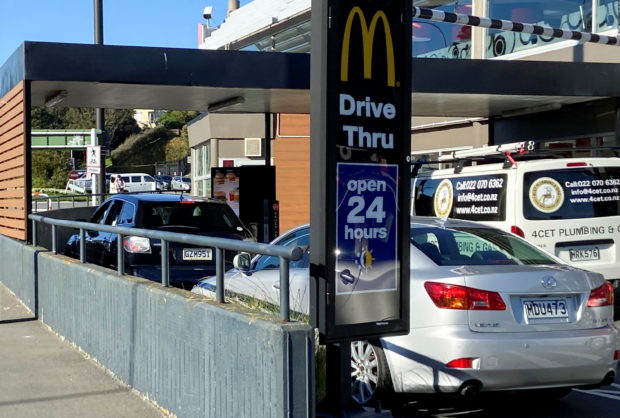
People queue up for takeaway food as a nationwide coronavirus disease (COVID-19) lockdown eases in Wellington, New Zealand, September 1, 2021, REUTERS
WELLINGTON — New Zealand reported a drop in new COVID-19 infections on Thursday, which authorities said was a sign that a nationwide lockdown was helping to limit spread of the infectious Delta variant.
Barring a few cases in February, New Zealand had been largely free of coronavirus until the Delta outbreak prompted Prime Minister Jacinda Ardern to order the snap lockdown last month.
Authorities reported 49 new infections in the outbreak epicenter of Auckland, a fall from 75 on Wednesday, taking the tally to 736.
“The latest lower number is encouraging and does show that our alert level 4 lockdown is working, even against Delta,” the Director General of Health Ashley Bloomfield told a news conference.
Of the 42 people in hospital infected with Delta, six were in intensive care units (ICU) and three on ventilation, he added.
About 2 million people in the largest city of Auckland and the neighbouring Northland region remain in strict level 4 lockdown, but authorities have eased curbs elsewhere.
“Our case numbers are moving around … that’s not unusual,” Ardern told the news conference. “The important thing is we are seeing some positive trends.”
Northland will drop to alert level 3 from midnight, Ardern said, bringing it in line with the rest of the country.
Ardern’s lockdowns and international border closure since March 2020 have been credited with reining in COVID-19, largely freeing up day-to-day activities from curbs.
But the government faces questions over a delayed vaccine rollout, as well as rising costs in a country heavily reliant on an immigrant workforce.
Just over a quarter of the population of 5.1 million has been fully vaccinated, the slowest pace among the wealthy nations of the OECD grouping.